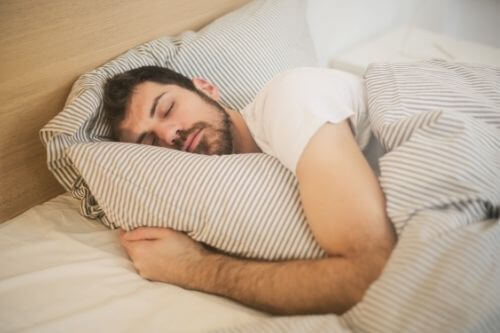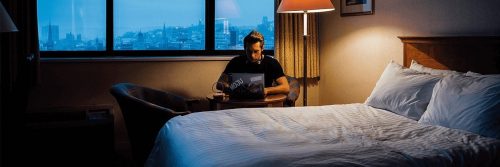Sleep, or rather the lack of it, preoccupies a lot of people. If you’re one of them, maybe some statistics will help you feel less alone; 30% of people complain about poor quality sleep, (insomnia), 25% say that tiredness affects them during the day, and 61% crave good sleep more than they do sex!
I sleep well, except when I don’t – as I write this it is coming up to 4.00 a.m.—but I always say I sleep well because I believe that I do. Sleep is a subjective affair, so while losing it certainly harms us, getting upset about it can make things appear a lot worse and make it more likely that the problem persists.
Sleep Habits
I know from my clients who have sought help with sleep problems that, not only do some people get pretty distressed about it, they believe (according to my clients and the sleep researchers’ findings), that they sleep far less than they actually do.
When asked about sleeping habits poor sleepers will say, for example, that they have “been awake all night”, when in fact they haven’t. Their sleep may have been interrupted by periods of wakefulness, in some cases for up to several hours, but the total of hours slept is generally greater than their reports suggest.
As I said, sleep is a subjective affair.
I’m not dismissing the idea of poor sleep or making light of it (there’s a pun in there somewhere… about ‘light sleep’….never mind). The consequences of lack of sleep can be serious; Chernobyl, Torrey Canyon, untold numbers of road accidents, surgical errors, and much more besides are due to human error caused by fatigue.
We function better when we are well-rested and some activities clearly demand that we are bright-eyed and capable of our best when we are engaged in them.
The Right Word
But for every individual who flies ‘planes for a living or who pilots a tanker, there are thousands, like you and me, who can get up feeling groggy with no real risk to life and limb. Even if we are a bit too tired to do some things well we can still manage our days without catastrophe. But that’s not how many people see it. And, ‘catastrophe’ is the right word because, as they lie frustratingly awake unable to nudge themselves back into slumber the tension mounts, negative thoughts parade through their minds as they, quite literally, catastrophize.

This only makes things worse as worry and tension further interfere with sleep. I have even known people who raise this to an art-form by beginning to worry about not sleeping the following night soon after stirring in the morning, creating a self-fulfilling prophecy which is satisfying for the wrong reasons (it’s great to be right about something, even when it is something that’s unwelcome).
How we feel about it affects how we sleep. That’s why successful sleep programmes address sleep attitudes and beliefs, as well as practicalities. Approaching sleep strategically might take a little practice, but it is worth the effort.
My advice? If your disturbed sleep persists, get help. If you are being robbed of sleep by something you can’t change (like a new baby in the home for example), there’s still a lot you can do to improve the quality of the sleep you do manage to get. A sleep therapist or an online program will be able to help here.
Tossing and Turning
Finally, one of the most distressing aspects of sleeplessness is lying there worrying about it. One proven tactic is to use the extra time. If you are unfortunate enough to find you can’t sleep, avoid lying there worrying about it. Get up and do something useful (writing, baking and cleaning are suggestions). If you find yourself worrying in advance that you won’t sleep well, then plan and prepare (lay out the ingredients, cleaning products or writing materials before going to bed).
The key here is to remove all obstacles between getting out of bed and doing the planned task. Obstacles can turn into distractions; one minute you are stroking the cat the next you are wondering what you are doing at 4.00 a.m…, and it starts all over again. Get engaged quickly, occupy yourself, and get on with whatever you have planned.
Some therapists recommend that the less enjoyable the task the better this strategy works. A teacher I knew often complained of having too much marking to do and that she was always trying to catch up. She left a pile of work to be marked on the kitchen table with whatever pens she needed and as soon as she awoke in the night she made straight for it and got on with the chore. She didn’t learn to like marking, but she did get better at staying asleep.
Based on experience, I’d say that time spent awake is wasted if you worry about it. Fill the time with activities and you can learn to stop worrying AND do something useful. Beware though, the smell of baking might wake the family.
Need more ideas?
To learn more about losing sleep see: The Sleep Well Plan








